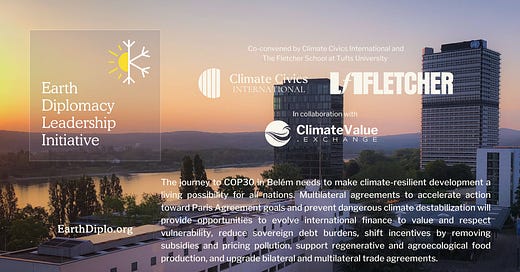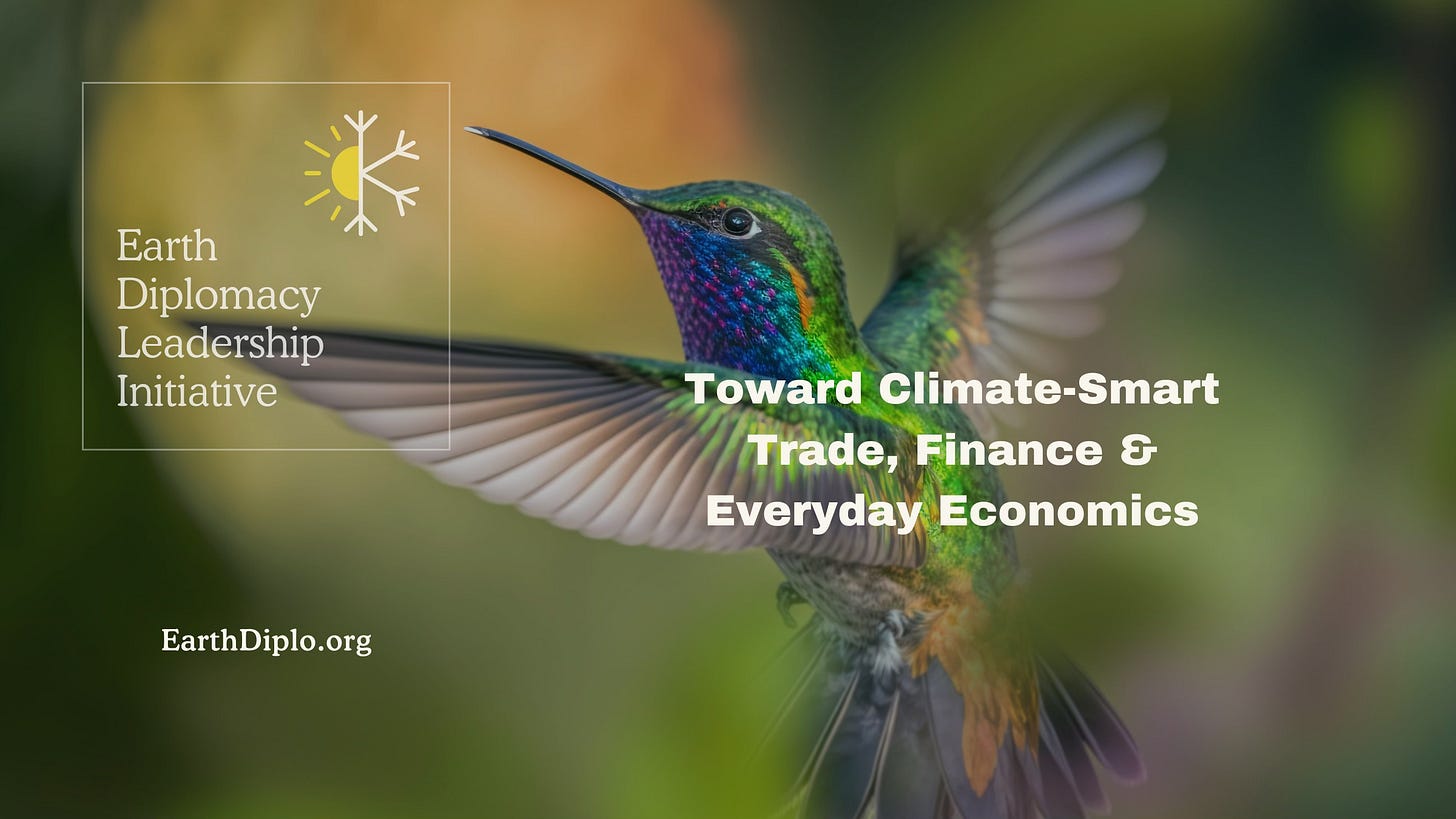Earth Diplomacy Leadership workshops ahead of SB62 negotiations
Ahead of UN Climate Change negotiations in Bonn, the Earth Diplomacy Leadership Initiative will review the process and key agenda items, with a focus on food systems and climate-related banking.
The SB62 cycle of Earth Diplomacy Leadership workshops will take place between Monday, June 2 and Monday, June 9, with two sessions on Thursday, June 5, to mark World Environment Day.
This series will open with a review of the UNFCCC Process and will close with a session on The Stakes, including review of specific agenda items. On Thursday, June 5, we will focus in on two complex areas of system-level innovation that hold promise for mainstreaming climate action:
Food Systems (more at CAFSA.net), and
Climate Banking (climatevalue.net/banking).
The schedule will run as follows:
Session 1: Monday, June 2 – The Process (09:00 EDT / 13:00 UTC)
Session 2: Thursday, June 5 – Climate Action and Food Systems virtual forum (09:00 EDT / 13:00 UTC)
Session 3: Thursday, June 5 – Climate Banking Innovation dialogue (11:00 EDT / 15:00 UTC)
Session 4: Monday, June 9 – The Stakes (09:00 EDT / 13:00 UTC)
Please visit the landing page for this series. You will find a detailed overview of each session, as well as relevant background materials, links to formal UNFCCC documents and agendas, and a wider resource library for ongoing follow-up. You can also click there to register, or click the button below.
THEMATIC OVERVIEW
The Process
In 1992, nearly 200 nations agreed the United Nations Framework Convention on Climate Change, which commits the Parties to “prevent dangerous anthropogenic interference with the climate system”. In June, in Bonn, 196 nations meet to negotiate next steps, acting as the Subsidiary Bodies to the Convention. The SB62 agendas encompass areas addressed by the Subsidiary Body for Scientific and Technical Advise and the Subsidiary Body for Implementation. → Session details
Climate Action and Food Systems
The Sharm el-Sheikh Joint Work on the Implementation of Climate Action on Agriculture and Food Security (SJWA) was adopted during the COP27 UN Climate Change negotiations in Egypt, in 2022. The aim was to bridge the work of making food systems climate-resilent with the work of transforming economies to support climate-resilient development. Acting on this emerging agenda could restore nature, spur sustainable development, diversify rural economies, and support climate-smart trade in line with Article 6.8 of the Paris Agreement. → Session details
Climate Banking Innovation
Climate impacts are getting worse, happening more frequently, costing more, and compounding each other’s effects. It is becoming ever more urgent for local communities, regional governments, and businesses at the micro, small, and medium scales, to establish climate resilience plans and capabilities. This embedded climate value will need to be measured, supported, sustained, and built on. Climate value banking, or climate banking, will emerge as a layer within existing institutions, a specialized business model among new start-ups, and eventually will become a core feature of mainstream banking services at all levels. → Session details
The Stakes
What is at stake in 2025? All nations are committed to deliver the 3rd edition of their Nationally Determined Contribution (NDC 3.0) for implementation of the decarbonization agenda of the Paris Agreement. These should be comprehensive, economy-wide development strategies that foster economic wellbeing in ways that are sustainable and climate-aligned. Failure to move forward nationally and globally will leave worsening, and likely unmanageable costs, to future generations, with many of those costs hitting already in the coming 10-15 years. → Session details
As always, you can follow the Earth Diplomacy Leadership Initiative, and review past sessions, dispatches, outcomes, and analysis, at EarthDiplo.org





